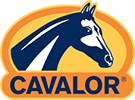The horse evolved over thousands of years on the Eurasian Steppes to eat one type of food: grass. Today the modern horse still needs eat excellent quality fibre from grass and other sources such as lucerne, beet pulp and high fibre concentrates. In this article we share all you need to know about fibre and 5 fibre facts.
The fibre in your horse’s diet helps to:
- Aids digestion
- Satisfies hunger
- Basic energy requirements
- Boosting mental and physical health with a well-functioning gastro-intestinal tract
Movement and grazing
The medieval horse or the modern 5* event horse all need to have the opportunity to graze and move for over sixteen hours a day. For a gastrointestinal tract to work properly, a horse must eat fibre every day. Whilst the medieval horse probably only ate grass and some cereals which would have been low in nutrients, our modern horses can eat ‘dietary fibre’ that has been sourced as a good quality with additional nutrients. This dietary fibre is digested by fermentation by the horse’s own hind gut bacteria. The large intestine uses micro-organisms: bacteria, viruses and yeasts and collectively they are called microbiome. This is highly functioning but a poor diet, (e.g., too much sugar and starch) stress and antibiotics can have a negative impact on the intestinal microbiome.
Different kinds of fibre
Fibre sources may vary, but you can divide fibre into two types: fermentable and non-fermentable fibre. Bacteria break down fermentable fibre in the caecum and large intestine. The fibre is then converted into volatile fatty acids that provide energy for the horse’s body. Nonfermentable fibre does not provide energy but has another important function. It provides intestinal content that stimulates kneading of the intestinal wall. This process moves feed along through the bowel.
The importance of prebiotics
The gut microbiome is something you often encounter in relation to fibre. A predominance of good microorganisms means that the gut microbiome has a positive influence on the horse’s health. High-fibre feeds support the development of a stable and healthy microbiome. Probiotics are microbes that can stabilise digestive disorders. Prebiotics are food for “good” gut bacteria. Well-fed microbes are healthy microbes!
Are you looking for products to support the gut health of your horse? Read more on the Cavalor solutions here.
Fibre energy sources
If your horse is resting or just doing light work, he probably can get all his energy requirements from pasture. But there are many factors to consider, the time of year which will determine the amount of energy your horse needs to maintain condition, plus the grass stops growing as the temperature drops. Young horses, old horses, brood mares, and performance horses all need more energy than can be gained from just fibre so you will need to supplement the diets. Remember that microbiome is very sensitive to change so even changing fibre sources must be done gradually.
Horses get most of the fibre they need from forage. You could say that if the horse eats enough forage, the horse is getting enough fibre. In principle, a horse can never consume too much fibre. However, fibre absorption is more complicated than it may seem. Too much fibre from forage is not possible, but forage does not consist of fibre alone. It also supplies the horse with protein and energy. Unlimited forage is therefore not healthy for every horse because a horse may consume more energy than it needs, with all the associated consequences. Always adjust the type and amount of daily forage according to your horse’s needs.
Five fibre facts
- Feed your horse enough fibre. A horse needs to eat at least 1.25% of its body weight in dry matter from forage. Chewing long fibres takes time and keeps the horse happy mentally but remember that the teeth are the start of digestion process so get the teeth checked regularly. Like forage, concentrates can also contain fibre.
- Be careful of feeding too much starch or sugar, especially in the spring and autumn when grass grows quickly and choose specific feeds that are easier to digest – always check the label. Feed according to the work done, match the ration to your horse’s physical activity
- Feed little and often… remember horses evolved to graze most of the day. Review your horse daily, his physical and mental health including having plump dropping that are not too wet, gaseous, or too dry.
- Horses only produce saliva whilst chewing. This promotes digestion, which in turn neutralizes stomach acid. And helps prevent stomach ulcers!
- Make all feed changes slowly, take care of the hind gut microbiome, it does not like changes in diet.
Want to know more about fibre? You can read more detailed articles here. Need personal advice about your horse’s nutrition? Call 0032 92202525 CET or visit mycavalor.com.


